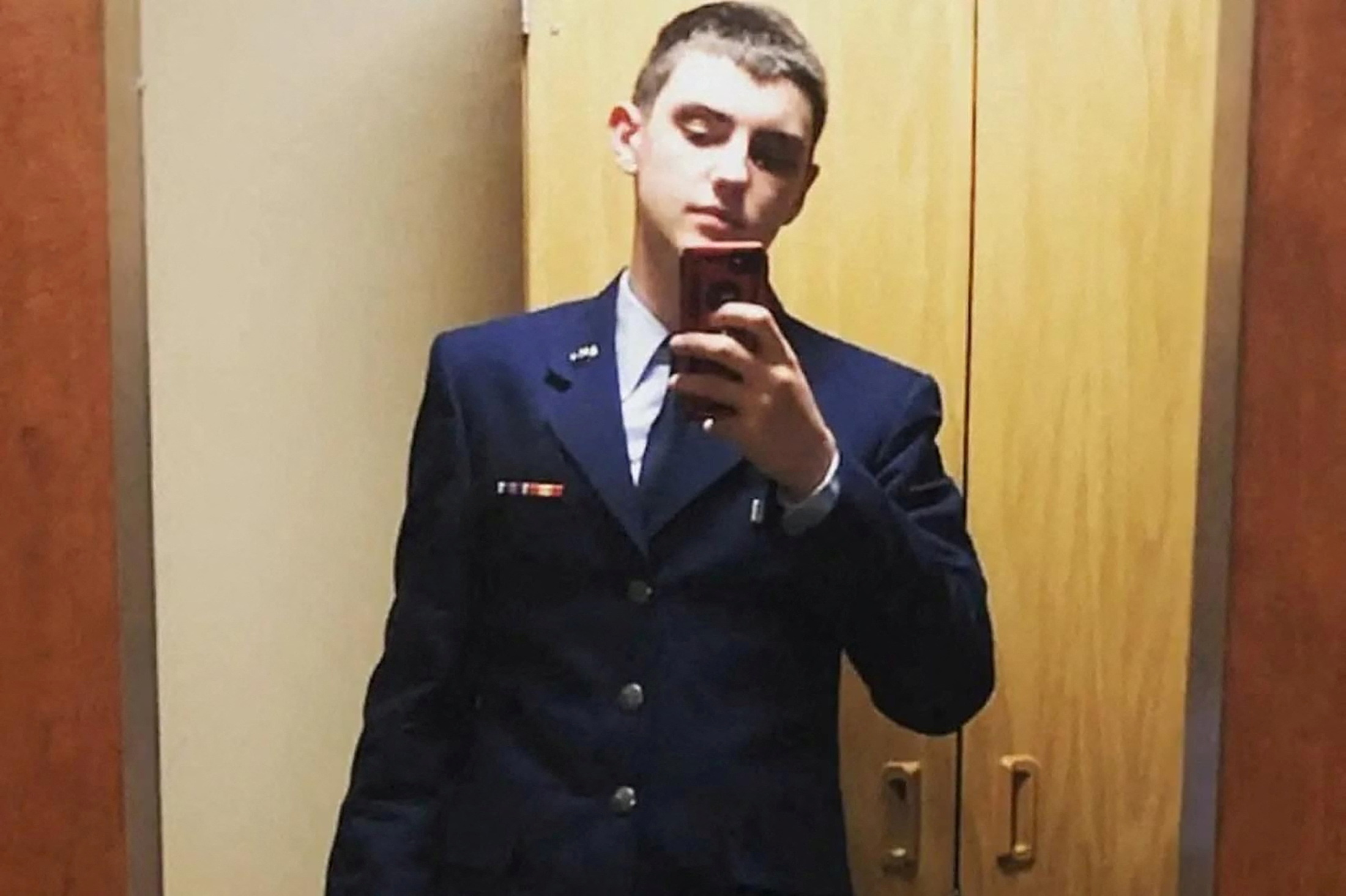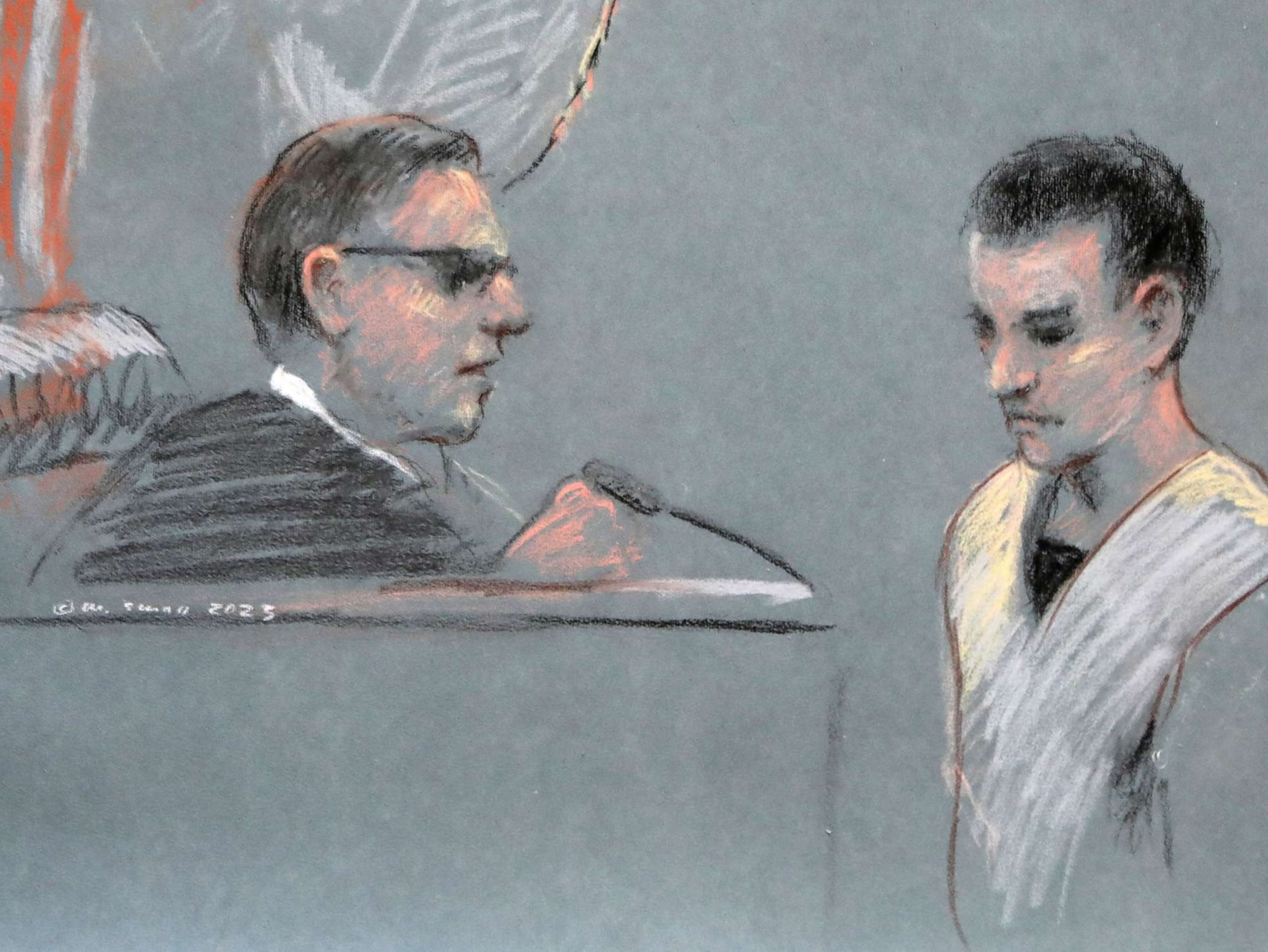Does motive make a difference in the Pentagon leak case? Experts weigh in
Jack Teixeira, 21, is charged with leaking national defense information online.
While there is much to learn about the alleged Pentagon leaker, reports have indicated suspect Jack Teixeira was driven by a desire to impress friends he made on the social media platform Discord.
Will that make a difference as the case moves forward?
Teixeira, a 21-year-old member of the Massachusetts Air National Guard, was arrested last week and charged with unauthorized retention and transmission of national defense information and willful retention of classified documents.
The charges collectively carry a maximum of 15 years in prison. Teixeira has yet to enter a plea.

Brandon Van Grack, a former Justice Department national security prosecutor, said what struck him about the case so far is the purported motive. Unlike previous individuals associated with disclosing national security and military secrets, including Edward Snowden or Chelsea Manning, Teixeira doesn't appear to have been motivated by ideology or a sense of duty to inform the public.
"We're much more familiar with individuals that appear to be whistleblowers or have a motive to disclose conduct they disagree with, and that's not the case here," Van Grack told ABC News.
The Washington Post interviewed a friend of Teixeira who described his motives as wanting to share the information he knew to a small private chat room whose members who bonded over their love of video games.
One Discord user who claimed to be a longtime member of the server where Teixeira is accused of sharing the classified information similarly told ABC News that Teixeira was not interested in "clout" or winning arguments, and "just wanted us to be informed, ahead of the news cycle."
Still, Van Grack said motive has no major impact in terms of the law or the case the U.S. government will bring against Teixeira.
"Even if you do not intend to have harmed national security interests, the bottom line is you've now disclosed this to an infinite number of individuals and so the damage is done," he said.
Steve Stransky, an attorney who previously served as senior counsel to the Department of Homeland Security's Intelligence Law Division, argued a person in Teixeira's position would know leaking sensitive information could damage the U.S.
Stransky said once an individual gets to the level of security clearance Teixeira had, they would have received routine training and educational materials warning about the harm that could result from that information landing in the hands of unauthorized third parties.
"So, even if his motive was not to create a negative impact against U.S. foreign policy and national security, it was pretty clear that doing this could have those intended results," Stransky told ABC News.
Federal prosecutors said in the 11-page criminal complaint that Teixeira possessed a high-level, top secret clearance known as Top Secret -- Sensitive Compartmented Information.
Teixeira would've had to sign "lifetime binding non-disclosure agreement in which he would have had to acknowledge that the unauthorized disclosure of protected information could result in criminal charges," according to FBI Special Agent Patrick Lueckenhoff.

Questions have been raised about how the junior airman who provided IT support for the 102nd Intelligence Wing had such a high-level security clearance. The Air Force has opened its own investigation into how Teixeira could have had access to the classified documents that he allegedly posted online.
The criminal complaint, while not mentioning any claims about motive, alleged that Teixeira even used his top secret clearance to try to search for the word "leak" on April 6, around the time when media outlets began reporting on the unauthorized disclosure of documents.
Attorney General Merrick Garland on Friday declined to divulge more details of the case but stressed the importance of national security, telling reporters, "We intend to send that message."
Teixeira was due back in court Wednesday for a detention hearing, but a federal judge granted his team's request for a delay for more time to address arguments for keeping him in federal custody.




